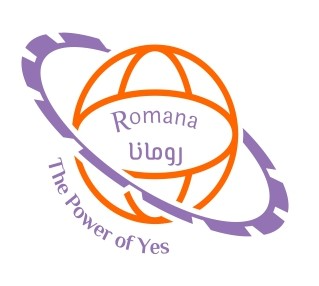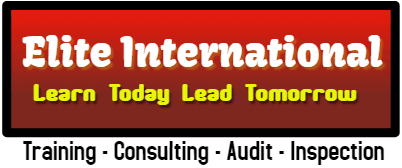Welding safety training is vital for workers who perform welding operations, ensuring safe practices while using welding equipment, handling materials, and working in environments where welding fumes, sparks, and heat are present. This training focuses on proper safety procedures to prevent accident

1. Regulations & Compliance
Follows OSHA 1910.254 (Welding, Cutting, and Brazing) and ANSI Z49.1 (Safety in Welding and Cutting) standards to ensure the safe operation of welding equipment.
Operators must be trained and certified in welding techniques, safety procedures, and the correct use of protective equipment.
2. Pre-Operation Safety Checks
Inspect Equipment: Before starting any welding operation, check the welding machine, cables, and gas cylinders for damage or leaks. Ensure all equipment is in good working condition.
Check Electrical Connections: Ensure that the electrical grounding is secure and that cables are free from damage or exposed wires.
Verify Ventilation: Ensure the work area is properly ventilated, particularly in confined spaces, to prevent the buildup of toxic fumes.
Fire Prevention: Remove any combustible materials from the work area or cover them with fire-resistant blankets. Always have a fire extinguisher nearby.
3. Safe Operating Practices
Use Proper PPE: Always wear appropriate PPE, including welding helmets with proper eye protection, fire-resistant gloves, leather aprons, hearing protection, and respirators if working in areas with high fume levels.
Welding Positioning: Ensure you are positioned correctly to avoid burns from hot sparks, molten metal, or direct exposure to the welding arc. Stand or sit comfortably with your body in a stable position to prevent injury from heat or sparks.
Use Correct Techniques: Follow the correct welding procedures and ensure that you are using the proper technique for the material and weld type. Avoid using excessive heat or pressure that could result in burns or explosions.
Safe Handling of Gas Cylinders: Store gas cylinders upright and secure. Always close the valve on unused cylinders and handle them with care to prevent leaks or accidents.
4. Common Hazards & Prevention
Burns: Welding involves intense heat that can cause serious burns. Use fire-resistant clothing and gloves, avoid touching hot equipment, and be cautious when handling hot workpieces.
Eye Injuries: The bright light from a welding arc can cause burns to the eyes (arc eye). Always wear a welding helmet with the correct filter lens and ensure the area is properly shielded.
Electric Shock: Welding machines use high-voltage electrical currents, which can cause electrical shock. Ensure proper grounding of equipment and avoid wet conditions when welding.
Fumes and Gases: Welding can produce harmful fumes and gases that are toxic if inhaled. Always work in a well-ventilated area, or use appropriate respiratory protection like a fume extractor or respirators.
Sparks and Fire Hazards: Sparks can fly during welding and ignite nearby combustible materials. Keep a fire extinguisher nearby, wear flame-resistant clothing, and clean the work area of flammable materials.
5. Post-Operation Safety Procedures
Turn Off Equipment: After completing welding, turn off all equipment, close gas valves, and disconnect power sources to prevent accidental activation or fire.
Cool Down and Inspection: Allow workpieces, tools, and equipment to cool before handling. Inspect tools and equipment for any damage or wear and repair or replace as necessary.
Clean Work Area: Remove any waste material, including slag, metal debris, and used consumables. Clean up the area to prevent fire risks and create a safe working environment.
Proper Storage: Store welding equipment, consumables, and PPE in a clean, dry place when not in use. Ensure gas cylinders are stored upright and away from heat sources.
6. Emergency Procedures
Injury Response: In case of burns, immediately cool the area with cold water or a cold compress and seek medical attention. For eye injuries, flush the eyes with clean water and seek medical help immediately.
Electric Shock: If someone experiences an electric shock, do not touch them directly. Disconnect the power supply and call emergency services.
Fire: If a fire starts, use a Class C fire extinguisher or fire blanket to extinguish it. In case of a larger fire, evacuate the area and call the fire department.
7. Certification & Refresher Training
Initial Certification: Includes training on safe welding practices, equipment inspection, PPE use, handling of materials, and emergency response.
Refresher Training: Recommended every 1-2 years or after an incident to ensure workers are up-to-date on safety standards, equipment updates, and welding techniques.
In today’s dynamic business environment, maintaining compliance, safety, and quality is essential for success. Romana Skills Training LLC is a KHDA & Dubai Municipality-approved training and consultancy provider dedicated to helping businesses enhance safety standards, meet regulatory requirements, and drive operational excellence.
We offer expert-led training and consulting services in Food Safety (HACCP, ISO 22000), Health & Safety (HSE), Quality Management, and Environmental Compliance, ensuring that organizations across various industries—food manufacturing, hospitality, healthcare, construction, and more—achieve full regulatory compliance and operational efficiency.
With a strong focus on tailored solutions, we empower businesses with practical knowledge and strategies that reduce risks, improve workforce competency, and enhance overall performance. Our commitment to excellence and continuous improvement has helped numerous clients meet Dubai Municipality, ISO, and global safety standards successfully.
Partner with Romana today and unlock excellence in safety and compliance!
(Institute Review)
55 years ago(Institute Review)
55 years ago
Welding training is offered by 'Safegreen Occupational Safety Training' to provide you knowledge and understanding of the industry-standard methods and procedures for carrying welding and taking care of the safety measures.

Gaining a CSWIP certificate is a testament to an individual’s knowledge, skill and experience. This training will help you get prepared for the CSWIP certification exam.

This 'Welding Safety Awareness' training will provide the delegates with adequate knowledge and understanding of the risk associated with welding operations and taking notes of the safety measures to minimize and control such risks.

This training is comprised of essential knowledge related to the field of welding and how to perform welding in a safe and efficient manner.

This training will teach you about the importance of welding safety, locating safety guidelines, and safety roles and responsibilities
© 2025 www.coursetakers.ae All Rights Reserved. Terms and Conditions of use | Privacy Policy